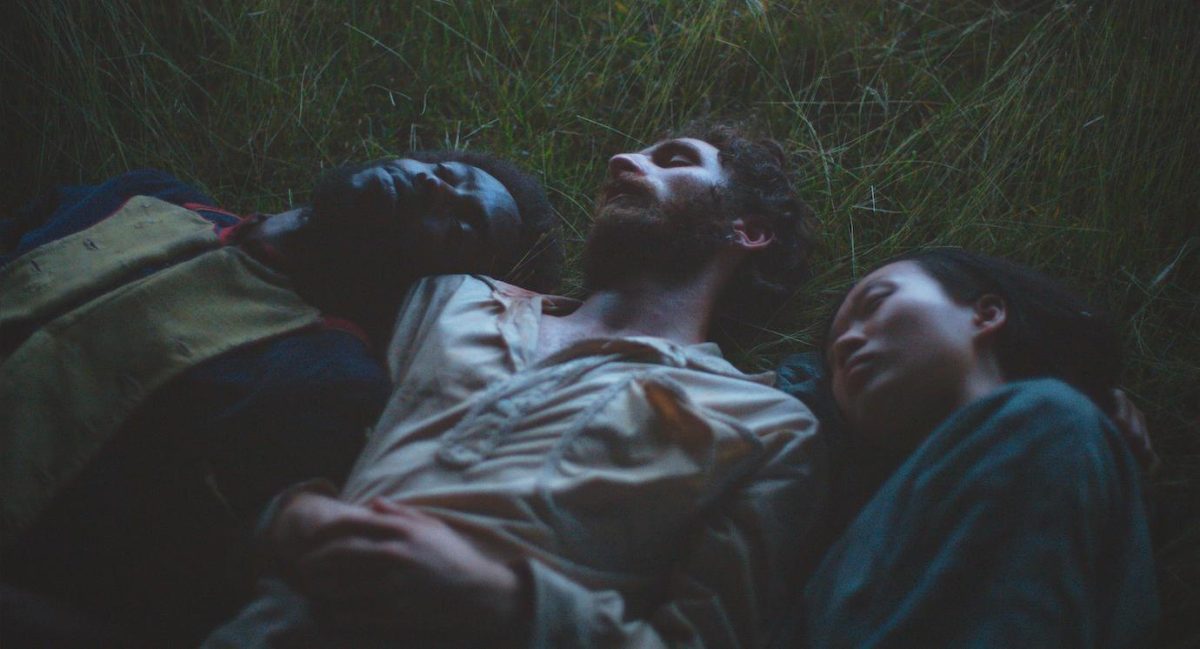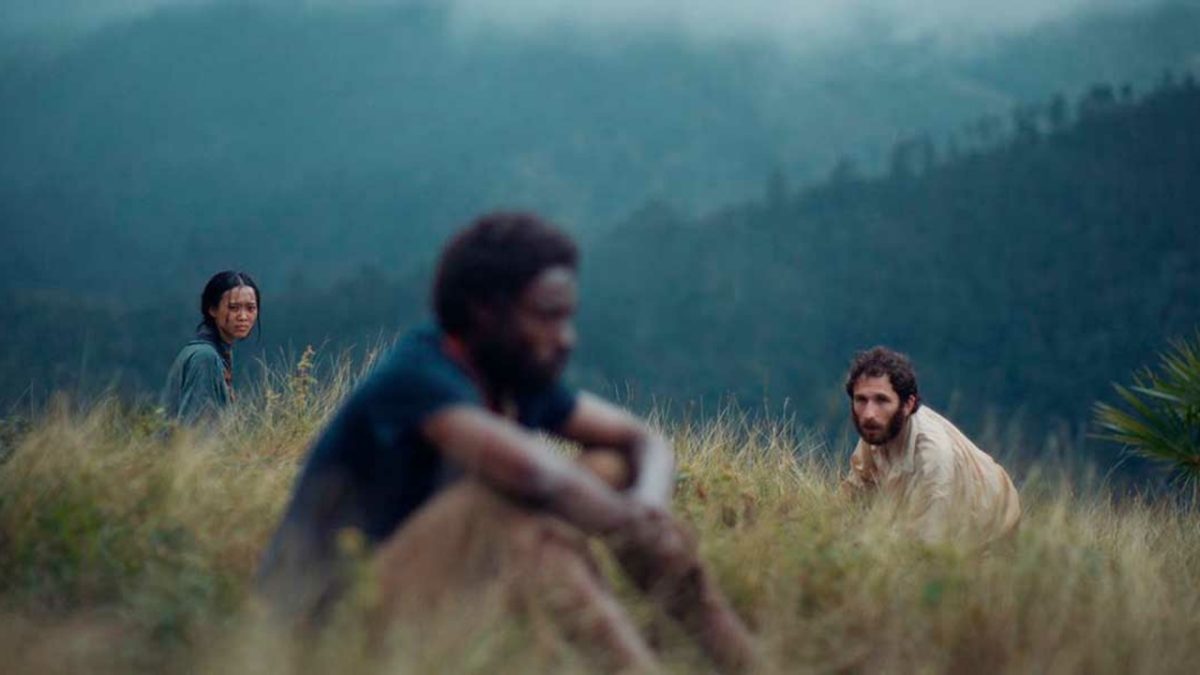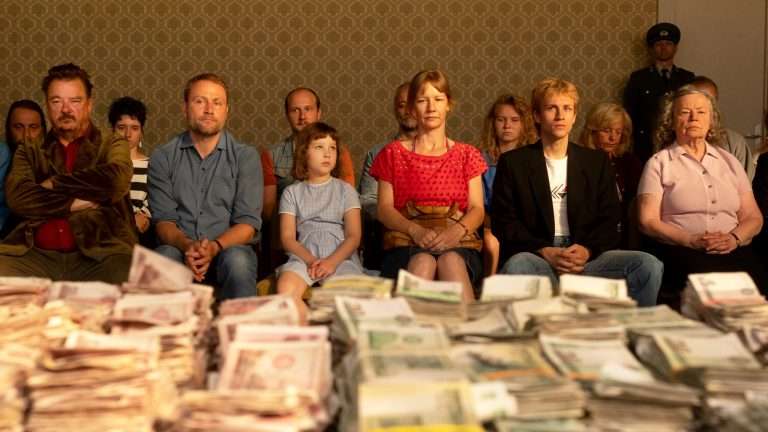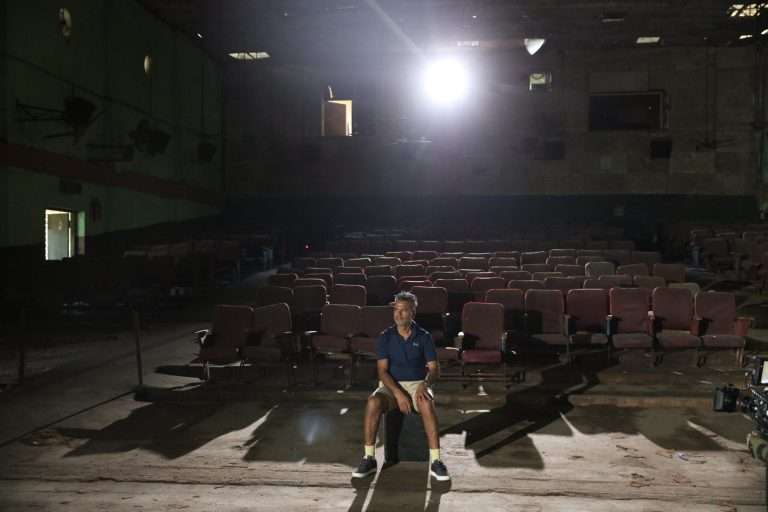Ulises Porra’s “Under the Same Sun” (Bajo el bismo sol, 2025) revolves around the close bond between a Spanish, a Chinese, and a Haitian person formed over time. It feels like the kind of humane connection that has become increasingly meaningful in the present world, where racially-motivated tensions are at their peak. However, Porra doesn’t turn their ethnic identities into weapons to follow the ensuing conflicts like conventional Hollywood dramas, self-satisfied in their moral conceit. Instead, he introduces those differences only as a part of their dynamic. It allows three people to be interpreted as humans first, and this narrative choice shifts the focus from their regrets of the past to the possibilities of the future that they can foster together.
Porra’s film is less interactive, more observational. The camera aims to capture the nuances of their interpersonal dynamics, mainly from a distance. It lingers around the actors to make us experience their shared joy, pain, or the loss of hope in real time. That keeps the drama deeply tied to naturalism rather than spectacle, which makes all the film’s interactions seem lived-in. It also captures the haunting beauty of the wilderness that they roam through or seek shelter in. You see the light seeping through the leaves or feel the gentle flow of the river, as you join its three characters on their journey of survival.
In their case, it’s not merely survival, but of outliving the tragic times in their present. Lázaro (David Castillo) is at the heart of his story, whose feeble efforts of trade lead him to the said tragedies. He travels with silkworms in hopes of building a business in this wilderness, but he doesn’t have the smarts to establish it, nor does he have the guts to sustain it. The only thing going for him is a sheer desire to live up to his father’s legacy, who taught him about trade at large. He treats his father’s words as gospel while living under the burden of what his father had achieved.

While caught in the middle of nowhere without anyone to rely on, Lázaro looks at any source of support. Whether it’s out of naivety or a genuine kindness, he sticks by Mei (Valentina Shen Wu), who knows how to turn the worms into high-quality silk. He relies on her, partially because of what his father told him about her skills. Gradually, these initial grounds for connection begin to waver, as they find newer reasons to stay by each other’s side. At times, it’s a mere need for survival, other times, it’s out of the genuine warmth they feel in each other’s presence.
Baptiste (Jean Jean) is the third companion in this journey, who makes them feel at home at a place where he sought shelter in dire times. He becomes a strong presence in this equation, guiding them through the native geography to help them with their business. It happens in the historical pre-independence era of the Dominican Republic, when the country was still under the influence of colonizers. That offers a hint of Baptiste’s strong-willed nature, who keeps his head high no matter what the situation, and gets ready to fight for his survival within the blink of an eye. He stands his ground and doesn’t allow anyone to belittle him.
Baptiste’s character is rooted in the history between the Haitians and the French, as the latter used the former in their militaristic or colonizing pursuits. Porra’s script uses this cultural backdrop to highlight the character’s pride, while the actor, Jean Jean, brings a much-needed depth to the character. He presents Baptiste’s display of unwavering strength as an extension and also a facade of his personality. It’s Baptiste’s grit and courage that help Lázaro when he needs it the most. Valentina Shen Wu represents another side of this strength and quiet resilience, allowing us to see only the parts of Mei that she would showcase to survive as an ethnically-Asian woman.

Despite the grounded performances, the film stumbles toward its conclusion, weighed down by uneven writing that overextends its focus on the characters’ inner lives. Lázaro’s torment is drawn out in layer after layer, revealing not only the hesitations born of his privileged, insulated upbringing but also a deeper, corrosive self-resentment—an insecurity tied to his brittle sense of masculinity. While not a cold-hearted villain, he isn’t the kindest of hearts either. It also helps that the actor, David Castillo, embodies his meekness and burgeoning anxieties with the kind of layered innocence that John Magaro conveys through his performances while playing people who are rather decent but misguided or misjudged.
The script doesn’t offer the same level of intricacy with Mei and Baptiste’s characters as it does for Lázaro’s. Instead, it limits them to the enigmas that Lázaro believes them to be, even if the story isn’t being told outright through a subjective lens. The lack of development on this front stings a little more, since it feels at least mildly incoherent with a film that speaks about harmonious co-existence, which wouldn’t be fostered until a desire to understand others beyond the surface level. It also affects the impact of its climax, which isn’t as evocative as it could have been.
That being said, the script dives into the effects of colonization and its impact on human connection with an admirable fervour. It also highlights themes of courage, faith, and survival in similarly trying times. Sebastian Cabrera Chelin’s cinematography makes the forest look daunting and illuminating at the same breath, crucial for a film that takes place almost entirely in the wilderness. Overall, “Under the Same Sun” ends up being a visually arresting and skillfully performed film that could have worked more with its script.



![Encounter [2021] Review: Riz Ahmed takes the Spotlight in this Sci-fi thriller](https://79468c92.delivery.rocketcdn.me/wp-content/uploads/2021/12/Encounter-2021-768x432.jpg)
![Shadows [2021]: ‘NYAFF’ Review – An Uninventive Thriller that barely flares](https://79468c92.delivery.rocketcdn.me/wp-content/uploads/2021/08/Shadows-2021.jpeg)

![Mondo Hollywoodland [2021] Review – Freewheeling homage to the 60s fails to make sense of its potent satire](https://79468c92.delivery.rocketcdn.me/wp-content/uploads/2021/08/Mondo-Hollywoodland-3-768x432.jpg)
![Museum [2017]: Fantasia Film Festival Review](https://79468c92.delivery.rocketcdn.me/wp-content/uploads/2017/07/Museum1-768x300.png)
